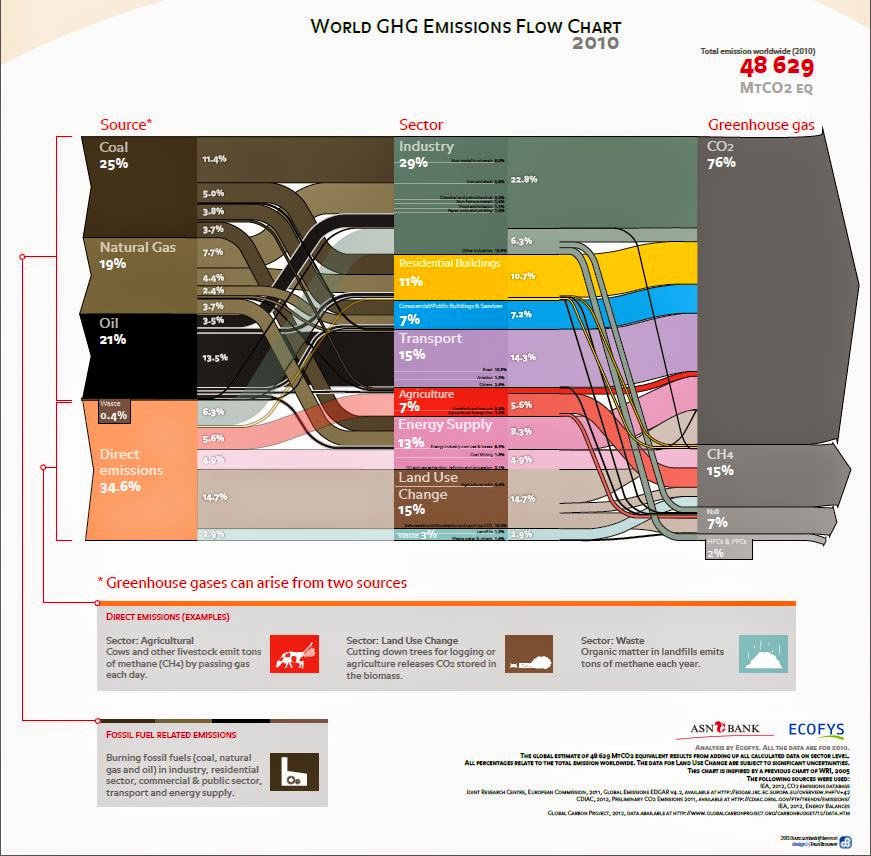Update (October 28): A study published in Proceedings of the National Academy of Sciences finds that various scenarios to reduce population have very little long-term impact. This study projects a population of 10.4 billion by 2100.
Update (March 2, 2015): The book Overdevelopment, Overpopulation, Overshoot looks at the impact of human population on the planet.
Update (August 11, 2015): A United Nations analysis projects 11.2 billion people by 2100.
Update (July 14, 2019): A reminder from Stephen Corry that growing populations (such as in Africa) in and of themselves aren't the biggest problem.
[I]f overpopulation is a problem because it strains the world’s resources, then the first and most efficient way to address it is not in Africa at all, it’s to reduce consumption in the North, which currently uses far more than its share of resources. Secondarily, if rates of population growth continue to fall when standards of living go up, then the easiest way of addressing that – inside Africa – would likely be to stop the massive resource outflow from the continent, and ensure more of its vast natural wealth remains with and starts fairly benefiting its natural owners.
In other words, to address “overpopulation,” the richer countries must do two things – consume less and stop stealing Africa’s resources. Both imply less for the Global North, and of course that’s the real problem with my simplified explanation.





